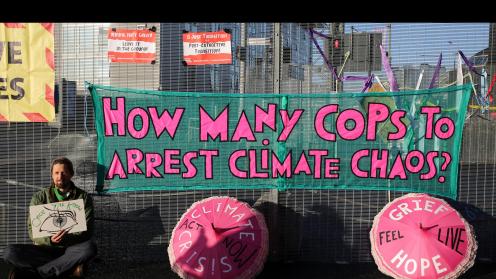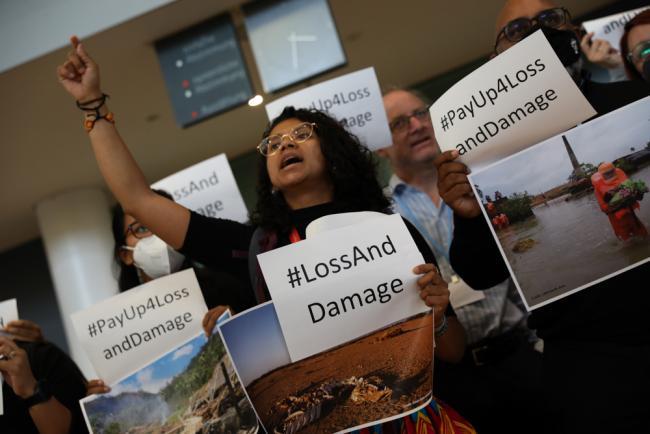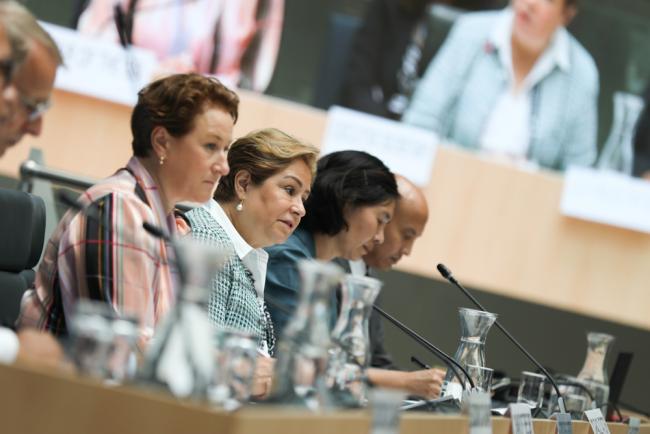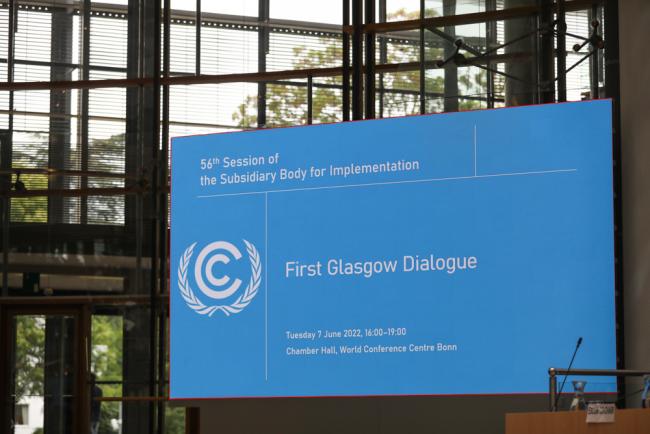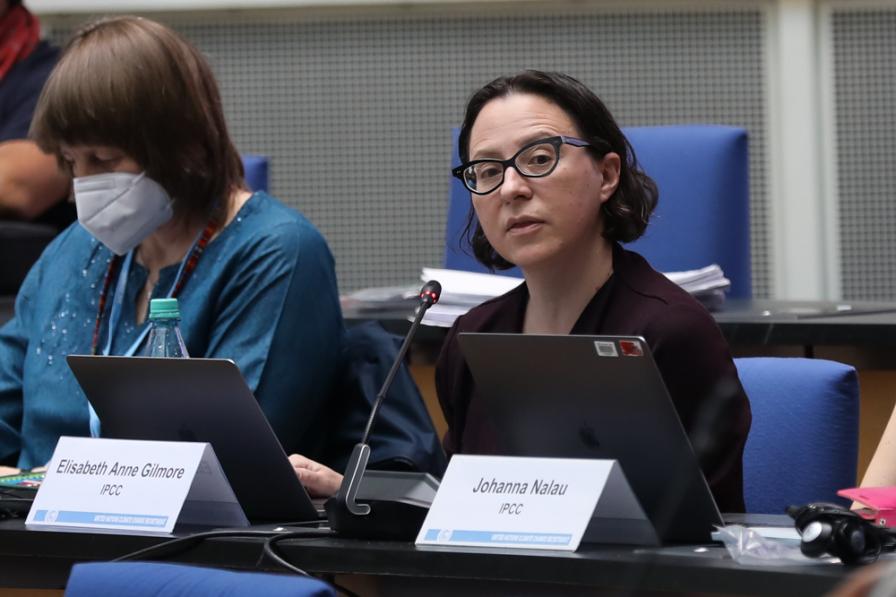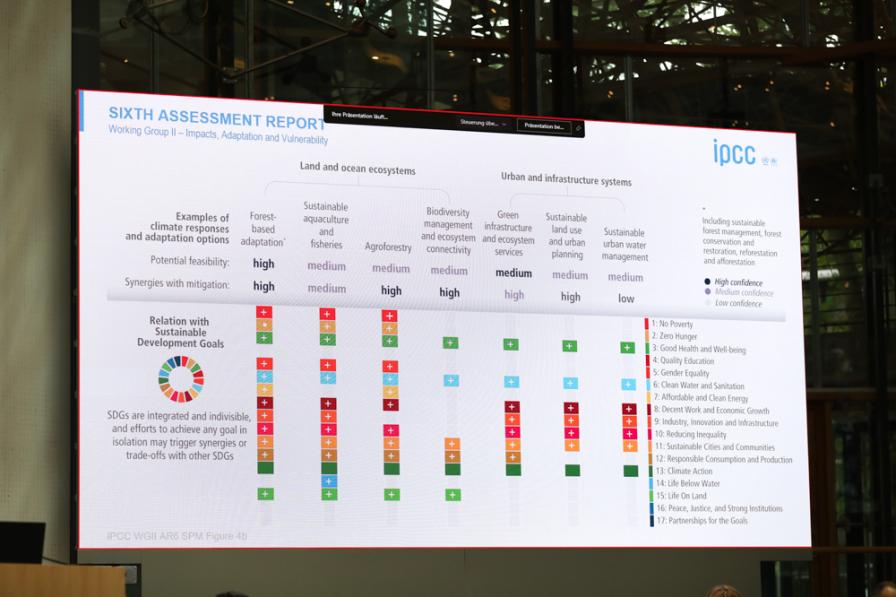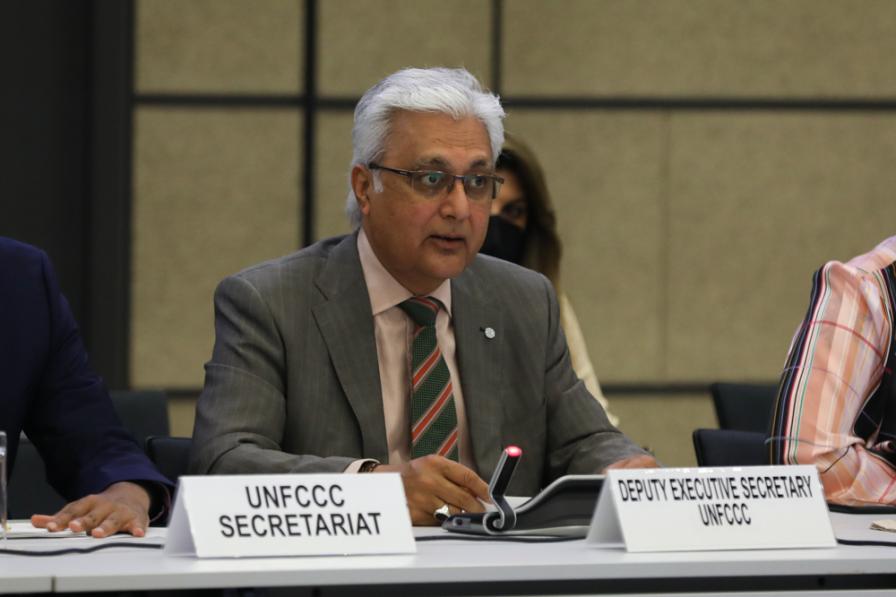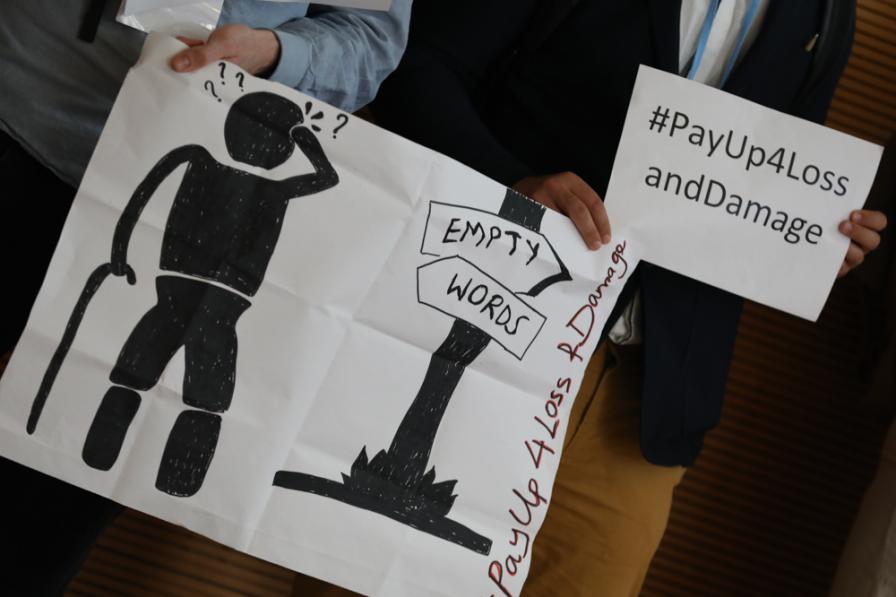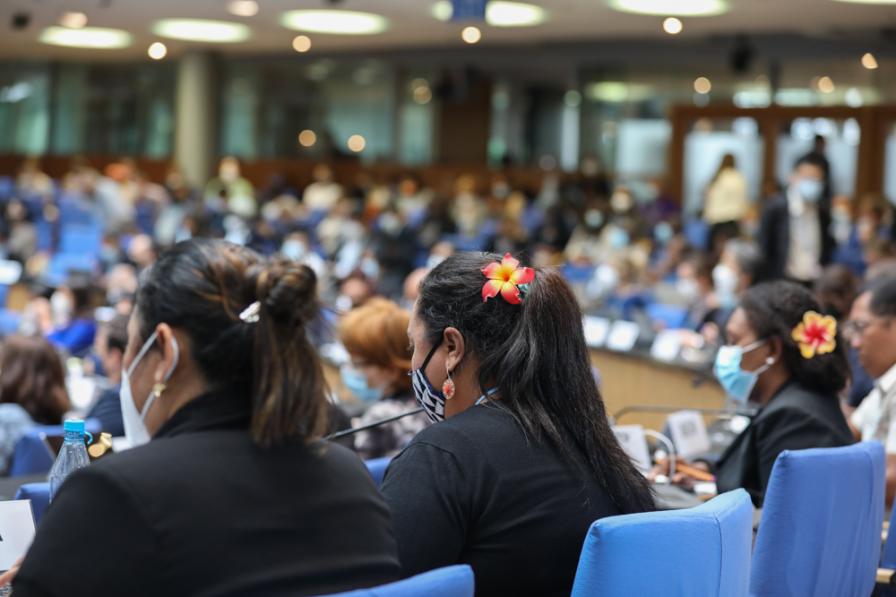After a rocky first day filled with discussions on the organization of work, the second day of the Bonn Climate Change Conference was all about content. Delegates engaged in informal consultations on market mechanisms, the global goal on adaptation, and the Santiago Network on loss and damage, among others. Several mandated events and workshops took place, including the Glasgow Dialogue on loss and damage and an Intergovernmental Panel on Climate Change (IPCC) event on adaptation.
To dive deeper, read the full Earth Negotiations Bulletin daily report.
Negotiations
Delegates were eager to make progress in the negotiations. During several of the informal consultations, the Co-Facilitators outlined their objective of preparing draft decisions for the 27th meeting of the Conference of the Parties (COP 27), which will take place in November 2022 in Sharm el-Sheikh, Egypt.
Highlights of the day included discussions on institutional arrangements for the Santiago Network, which aims to connect vulnerable developing countries with providers of technical assistance, knowledge, and resources they need to avert, minimize, and address loss and damage. Parties agreed that the rapid operationalization of the network is crucial, with all expecting to adopt a decision for institutional arrangements at COP 27, including on the terms of reference (ToRs) for a governing body. Parties broadly agreed to first discuss the structure and operational modalities, then to finalize the ToRs. They disagreed, however, about how detailed the operational modalities need to be in order to operationalize the network.
The discussions on the work programme for urgently scaling up mitigation ambition and implementation–set up with the aim to keep the 1.5°C target in reach–drew a crowd. Many developing country groups stressed that “developed countries must take the lead” in closing the pre-2020 mitigation gap. Other discussions related to, among others: cooperative approaches under the Paris Agreement; guidelines for greenhouse gas inventory reporting; and agriculture.
Mandated Events and Workshops
Negotiations are only one aspect of Subsidiary Body meetings. The schedule was packed with mandated events and workshops, many of which related to key contentions, such as loss and damage.
In a special event under the Glasgow–Sharm el-Sheikh work programme on the global goal on adaptation, lead authors from IPCC Working Group II (WG II) provided latest scientific evidence on adaptation progress. They noted that progress is uneven and underscored that there are limits to adaptation: some solutions will not work above 1.5°C of warming. The IPCC authors also shared their assessment of the economic, technological, and social feasibility of different adaptation measures and their synergies with mitigation and the Sustainable Development Goals. Current global financial flows are insufficient for near-term adaptation needs, they noted.
Addressing participants in the Glasgow Dialogue on loss and damage, Patricia Espinosa, UNFCCC Executive Secretary, stressed that loss and damage is “not a distant future challenge” for many countries. She called on participants not to “shy away from tough issues” like livelihood diversification and planned relocation. The event started on a heated note: Antigua and Barbuda, for the Alliance of Small Island States (AOSIS), argued that the current structure of the Dialogue does not permit discussions on gaps in existing funding arrangements that limit financial support to address loss and damage. AOSIS, supported by many other developing countries, reaffirmed their expectation that the Dialogue will lead to a decision on a loss and damage finance facility at COP 27.
During a workshop moderated by Subsidiary Body for Scientific and Technological Advice (SBSTA) Chair Tosi Mpanu Mpanu, delegates also shared views on the work programme under the framework for non-market approaches referred to in Article 6.8 of the Paris Agreement. They pointed to existing non-market approaches, such as the Adaptation Benefits Mechanism by the African Development Bank, and identified possible uses for an upcoming web-based platform, such as registering activities and matching activities with funding.
Other events included the third session of the structured expert dialogue (SED) on the second periodic review of the long-term global goal under the Convention, and the overall progress towards achieving it.
All ENB photos are free to use with attribution. For the Bonn Climate Change Conference 2022, please use: Photo by IISD/ENB | Kiara Worth.
To receive free coverage of global environmental events delivered to your inbox, subscribe to the ENB Update newsletter.
Informal Consultations Throughout the Day

Delegates gather for discussions on matters relating to the work programme to urgently scale up mitigation ambition and implementation
